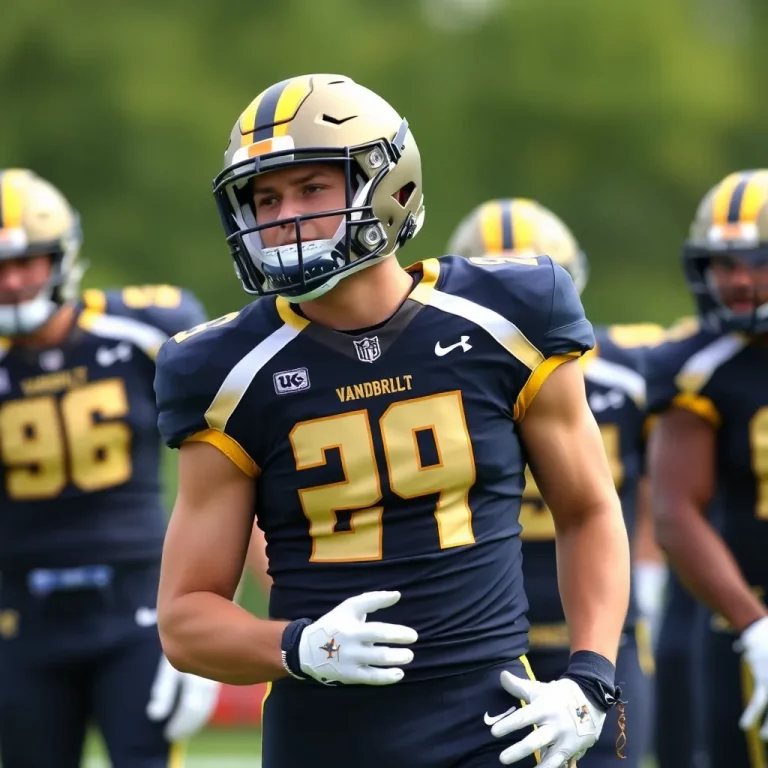Vanderbilt—A class-action lawsuit has been filed against the NCAA by Vanderbilt linebacker Langston Patterson, defensive lineman Issa Ouattara, and nearly a dozen other current and former athletes. The athletes are challenging the redshirt rule, which could allow players to compete for all five years of their eligibility instead of the current limit of four playing years.
The NCAA allows athletes five years of eligibility but limits them to playing in just four of those years as one is reserved for a redshirt season. This lawsuit claims that this rule violates antitrust laws and restricts players’ chances to earn NIL income, which refers to the ability to profit off their name, image, and likeness.
Co-lead counsel for the athletes, Ryan Downton, stated in the complaint, “We are not challenging the NCAA’s rule limiting players to five years of eligibility to play college sports or the concept of a defined eligibility period generally. But the NCAA has no basis to prohibit a player who is working just as hard as all of his teammates in practice, in the weight room, and in the classroom, from stepping on the field (or court) to compete against another school in one of those seasons.”
Downton emphasized that athletes should have “five years to practice, five years to graduate, five years to play.” Earlier this summer, the NCAA Division II Management Counsel recommended allowing Division II players to compete in all five years, and the lawsuit argues that it’s time for NCAA Division I to follow suit.
The lawsuit also pointed out the unfairness of the current system, which forces athletes to choose between using their fifth year to play immediately as true freshmen or sitting out an entire season to preserve a redshirt senior year. Football players can play up to four games and still redshirt, while athletes in other sports have no option to play.
Vanderbilt has a history of involvement in eligibility lawsuits. For instance, quarterback Diego Pavia secured an injunction last year that allowed him to play in the 2025 season, arguing that his time in junior college should not count against his eligibility. Similar cases have emerged since then, indicating an ongoing debate over the legality of the eligibility clock.
While some athletes have found success with their challenges, including Wisconsin’s Nyzier Fourqurean, many others have seen their pleas for additional eligibility denied recently. With various cases unfolding, the outcome of this latest lawsuit could significantly impact how eligibility is viewed within NCAA sports.


